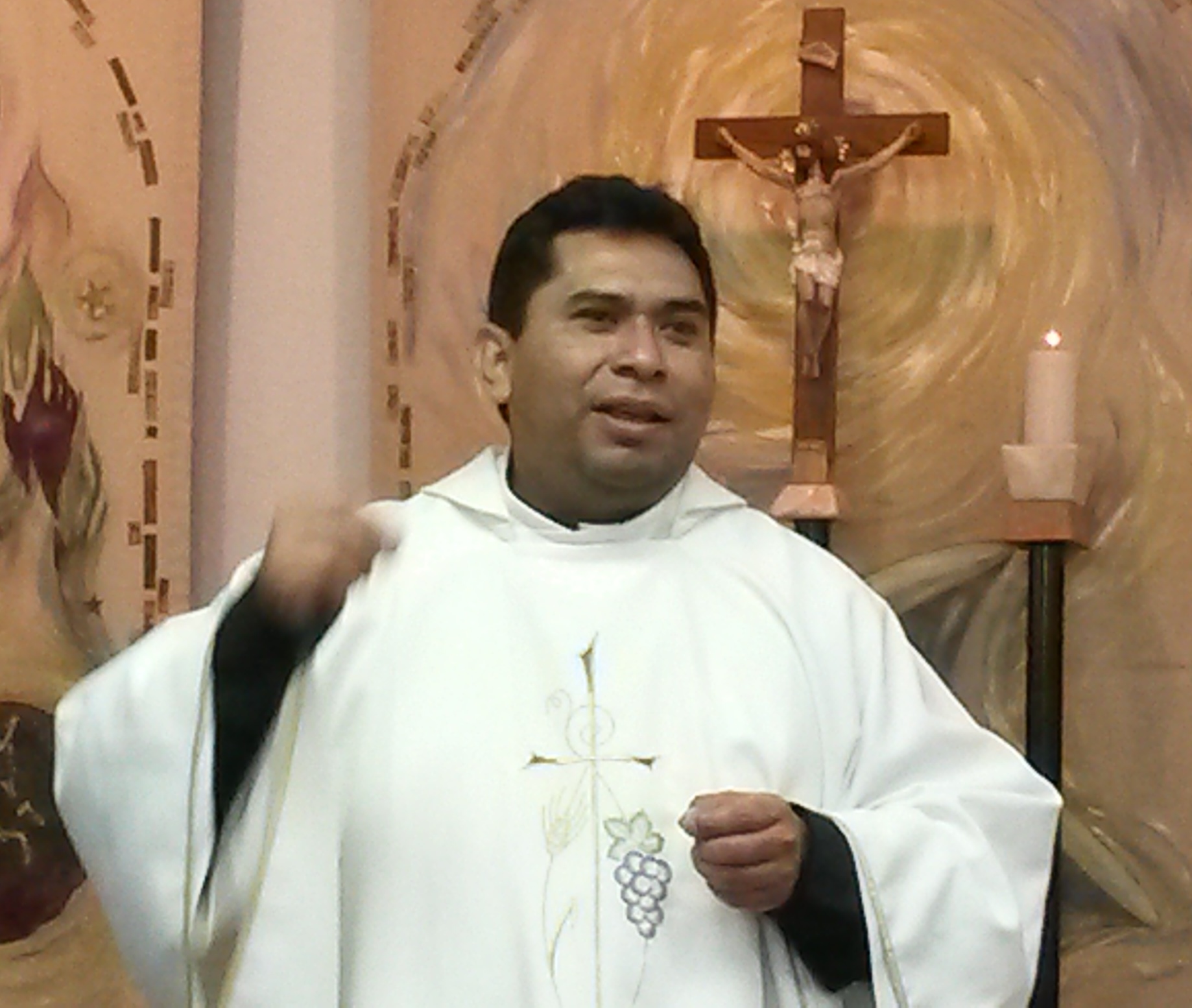 III SUNDAY IN ORDINARY TIME
III SUNDAY IN ORDINARY TIME
JESUS, SPRING OF LIVING WATER
By our Pastor, Fr. Carmelo Jiménez
This third Sunday we will reflect on the Spring of Living Water: Jesus. I have told the story many times of the experience I had on Mount Sinai, so I won’t tell it again today. We walked starting at midnight in order to be at the summit at 4:30am and be able to contemplate the sunrise. Everywhere one looked you could only see rocks and more rocks. All of the hills are covered in rocks and nothing else, there are no trees, everything is so dry. And so to find a small spring of water is a treasure.
“I will be standing there in front of you on the rock in Horeb. Strike the rock, and the water will flow from it for the people to drink.” (Ex 17:6a) It is understandable that the people of Israel, after walking for many years in the desert, in certain places wouldn’t find enough water to drink. What is not understandable is their lack of trust in God: “Is the LORD in our midst or not?” (Ex 17: 7b) God had always been with them, he had never abandoned them and once again he shows his love and care for his people.
In Jordan there is a small town called Wadi Musa (Valley of Moses) that most people know nothing about, but many know the story of the precious City of Petra that is built amid the rocks, which is where its name comes from. Wadi Musa is the central administration of Petra. But Wadi Musa is not important because of Petra, but rather for being the guardians of the spring of water that flows from a rock, which history tells is the rock that Moses touched with his staff. In the history of this town is recorded that this spring has given water to many generations, towns and also many animals. The people go there with their jugs to take water to their houses. There are also canals that run through the small town and at one time went to Petra to bring water there as well.
The gospel this Sunday is not taken from Saint Matthew, but rather Saint John who offers us a very precious story of the encounter between Jesus and the Samaritan woman. Jesus is going from Jerusalem to Galilee and tired from his journey goes through Samaria, which was a place that pious Jews avoided entering. He, Jesus, a man, a Jew and, in a way God, speaks to a sinful and heretical woman. Jesus asks a Samaritan woman, a person who because of her heresy could only give weariness and a curse. But we know that Jesus asks something of her in order to give her something much bigger. “How can you, a Jew, ask me, a Samaritan woman, for a drink?” (Jn 4:9) The relationship between the Jews and the Samaritans, was and is a long history of hate and resentment because of religion. The Samaritans considered themselves heirs of the patriarchs, they had their Pentateuch, they believed in God, but some thought their god was better than the other god, as well as their temple, their holy mountain and their water and their springs.
Jesus did not pass through there by accident or chance. He had chosen the way he would travel and asked the woman for water; he comes asking, not offering. Jesus listened to the complaints of the Samaritan woman against the Jews; but Jesus in the gospel doesn’t represent the Jews, even though he may be confused for one. This is the great teaching of Jesus: he asks in order to give; he asks questions in order to give answers; he feels thirsty in order to offer himself as living water.
“But the hour is coming, and is now here, when true worshipers will worship the Father in Spirit and truth; and indeed the Father seeks such people to worship him. God is Spirit, and those who worship him must worship in Spirit and truth.” (Jn 4:23-24) Jesus reveals a new religion and a new way to worship: in Spirit and truth. The Spirit will show the type of worship that is meaningful: to know God and worship him as Father. But the Jews and the Samaritans do not worship a God as Father, rather a god that they have created in their own way; a god that justifies their hate and resentments; a religion that has gotten into some of our churches.
The Samaritan woman dialogues with Jesus and when she recognizes him, she changes. She also brings her joy to others. She has found the spring of living water, the spring of love and forgiveness, a new religion and a different way to worship; to have in God a Father. May our Lenten desert make us feel thirsty for living water, for Jesus and upon finding Him may we be able to change, leaving behind hate and resentments. And may we take our joy of encountering Jesus to our many brothers and sisters.